Jia Zhangke's Decade-Long Promise to “Old Friends”: Looking Back at the Times, Conversations with the Future
The first workshop & masterclass of the 15th Beijing International Film Festival (BJIFF) kicked off as scheduled, featuring a renowned director both at home and abroad, Jia Zhangke, who was the first to take the stage.
This workshop & masterclass, themed “Mountains Remember, Friends Reunite”, invited Jia Zhangke along with his long-term collaborators Shozo Ichiyama, Yu Lik-wai, Matthieu Laclau, and Zhang Yang. Together, they traced back through the creative journey of Jia Zhangke's works, discussed the mutual selection between film and technology, and explored how films continue to rejuvenate with new vitality amidst the changing times.
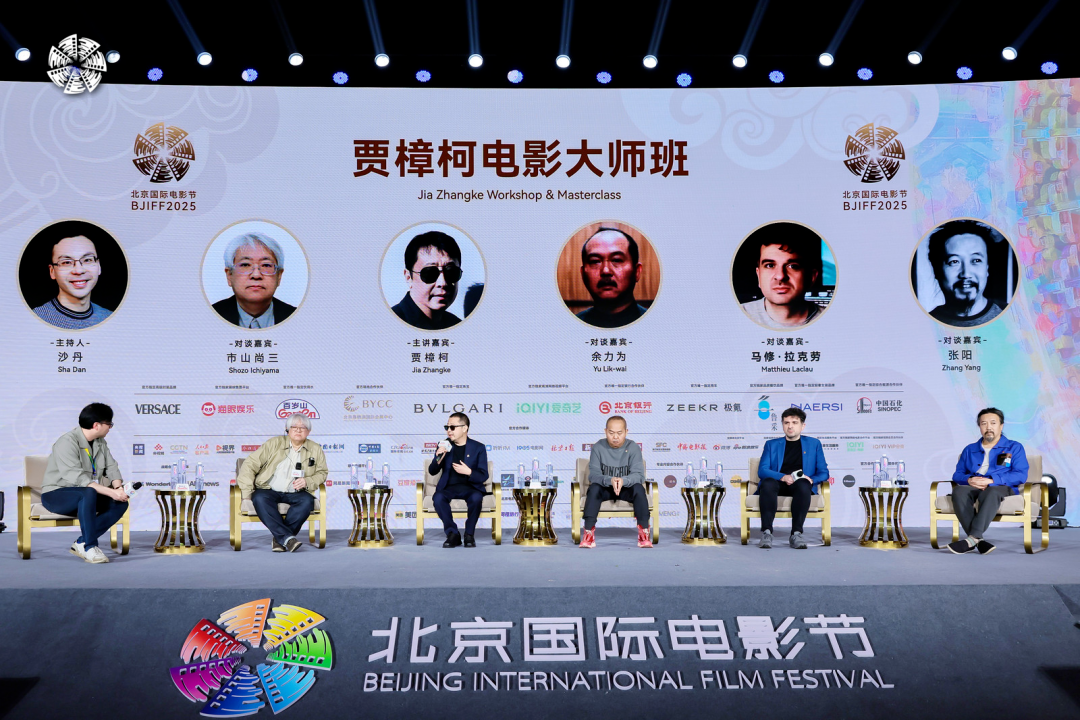
Picture of Jia Zhangke's Workshop & Masterclass
▌Resonance Between Individual Experience and the Times
Coinciding with the tenth anniversary of the release of Mountains May Depart, and with its third story set in 2025, Jia Zhangke mentioned at the beginning of the event that it was an especially significant commemoration for the cast & crew, offering a rare opportunity to reunite with cast & crew and look back on their work. Recalling the initial inspiration behind Mountains May Depart, Jia Zhangke said, “Since 2000, most of my films have been short-term, immediate reflections of the present, without spanning over a long period. By 2014, I was 44 years old and had experienced a lot, which naturally sparked my interest in exploring how to address a longer timeframe in film. It wasn't just about a summer, a week, or a day, but rather how people change over a long period and how they face inevitable problems in life.”
As for specific creative inspirations, Jia Zhangke shared a personal story for the first time: “In Mountains May Depart, the character played by Zhao Tao loses her father, whom she brings home. This is actually based on my own experience, my father also passed away away from home. My sister and I drove for nine hours to bring him back to our hometown. This has always been a deeply private part of my heart and a tremendous emotional drive, and today I can finally talk about it.”
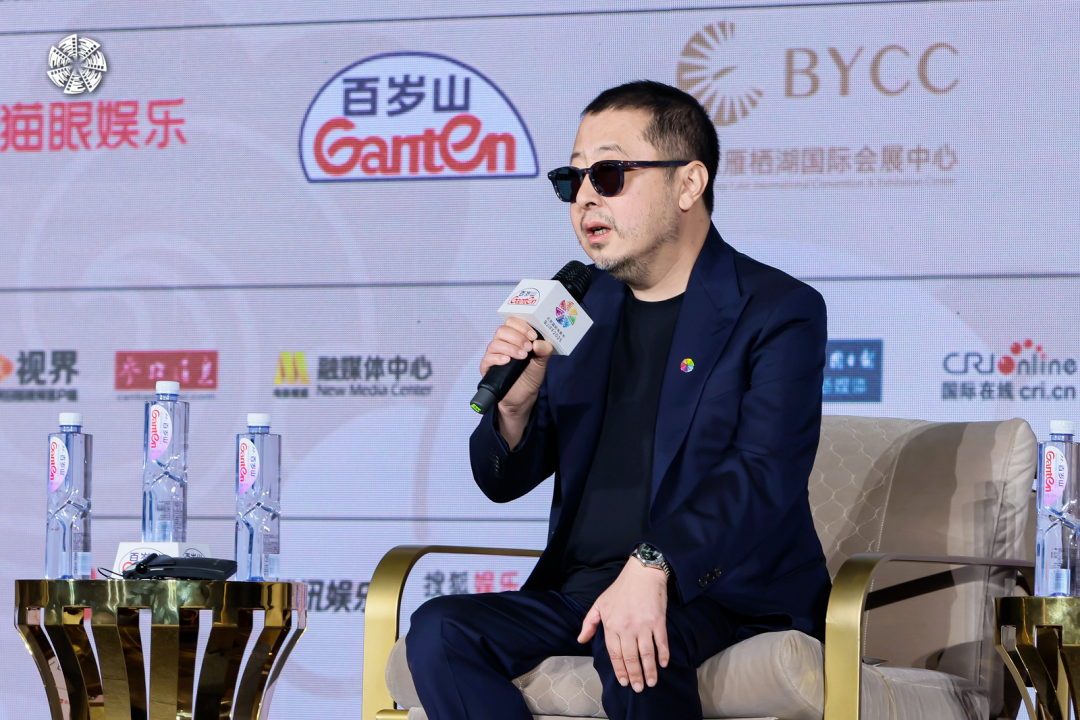
Jia Zhangke
Jia Zhangke's films always deal with the transformation of social conditions and personal experience. He also candidly admitted that, as one reaches middle age, one inevitably has to face sudden life changes. His recent three films all expressed his current emotions directly through his work. “After finishing the first two chapters of Mountains May Depart, I felt the need to include a story about the future - because people naturally wonder what the future holds. At the time, my imagination was limited by the Internet and transparent communication tools. I never expected that ten years later we would be in an era dominated by artificial intelligence, moving even faster than what I had imagined in the film. The new technologies have brought about new ways of living - a sense of loneliness, isolation, and increasingly diverse emotional choices.”
In addition to analyzing his own filmmaking process, Jia Zhangke shared his observations on the film industry. “Mainstream cinema, especially commercial films, follows a basic principle: emphasizing narrative efficiency. But this isn't the way how we actually experience the world in our daily lives. The real world we live in is full of so-called "inefficient" moments - not inefficient in reality, but moments that don't necessarily drive the plot forward. Yet, these are often the most important parts of our lives.” Regarding this interpretation of “inefficiency”, Jia Zhangke further extended the idea to the seemingly casual or tangential scenes in Mountains May Depart: “These moments may not be grand enough to change the course of our lives, but they are still deeply significant. They deserve to be expressed and shared with the audience.”
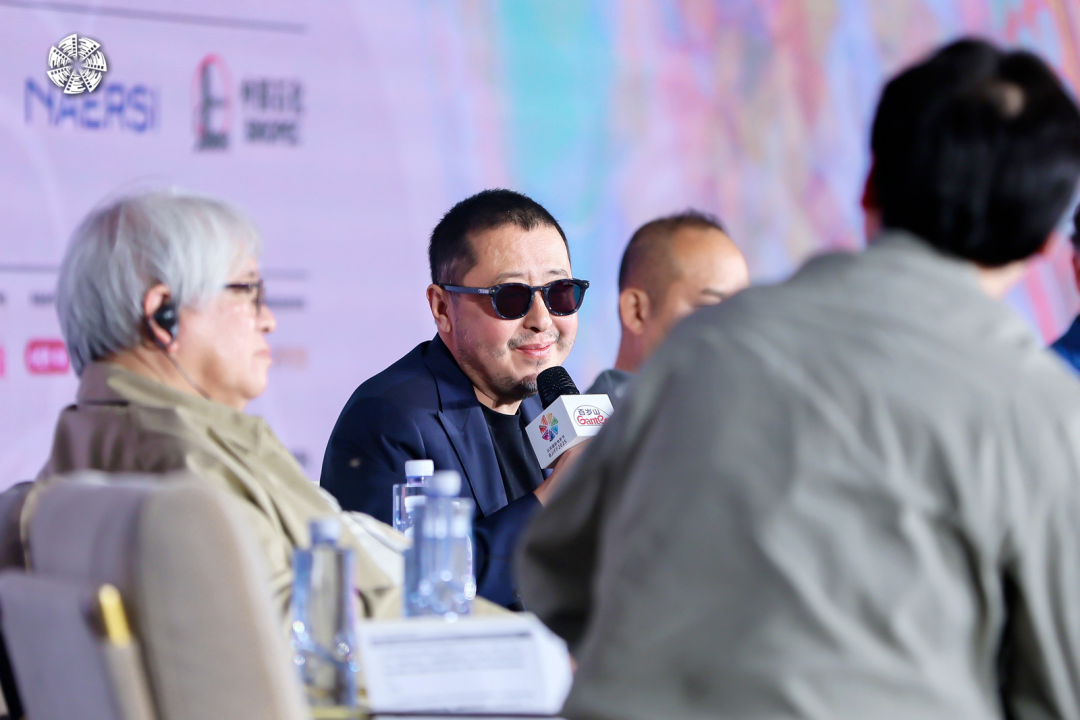
Picture of Jia Zhangke's Workshop & Masterclass
▌Technology Influences Aesthetics, Aesthetics Guide Technology
Many of Jia Zhangke's collaborators have worked with him for over a decade, some even for twenty years. Therefore, the birth and evolution of “Jia Zhangke-style Aesthetics” could not have happened without long-term collaboration and mutual understanding between Jia Zhangke and his team.
This workshop & masterclass was not only a retrospective glance across generations but also a showcase of Jia Zhangke and his team's sharp awareness and flexible use of rapidly evolving film technology. Speaking about Mountains May Depart, Jia Zhangke explained why he used three different aspect ratios to distinguish the film's three narrative periods. While it might seem like a clever trick at first glance, he emphasized that the aesthetic qualities of each aspect ratio significantly enhanced the storytelling. “The choice of aspect ratio was closely tied to the characters' lived experiences. We once lived in a world filled with passionate interpersonal relationships. As time passed, those relationships changed, emotional expressions evolved, and direct human interaction gradually weakened. People began living more isolated lives within their own virtual realities. Aspect ratios became a powerful tool to convey the shifting emotional atmosphere across the times.”
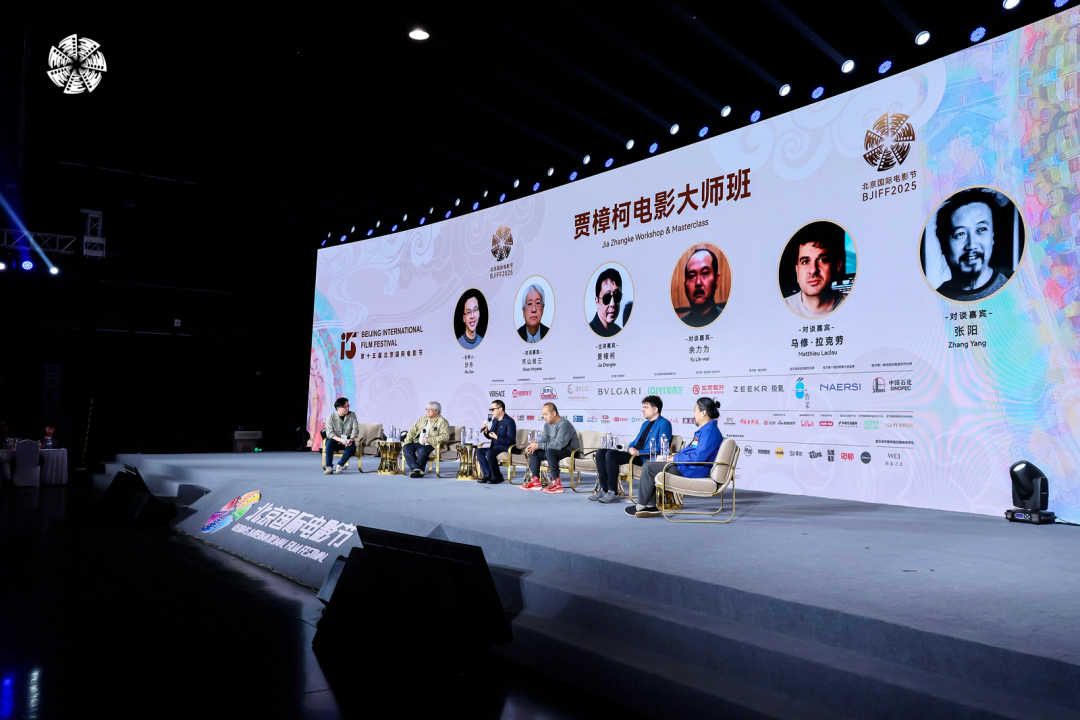
Picture of Jia Zhangke's Workshop & Masterclass
Producer Shozo Ichiyama shared his reflections on the changes over the past decade since the release of Mountains May Depart, speaking from his perspective: “When we were making Mountains May Depart, I had no idea what the world would be like after ten years. Looking back now, many things have changed significantly. But the biggest change isn't really in people's appearances or personalities - it's in equipment and technology.” Shozo Ichiyama also spoke about his long-term collaboration with Jia Zhangke, which he said is built on mutual respect: “I deeply respect his ideas. Overall, our views align very well, and I often find myself agreeing with him. Every time he makes a decision, I believe it to be the right one.”
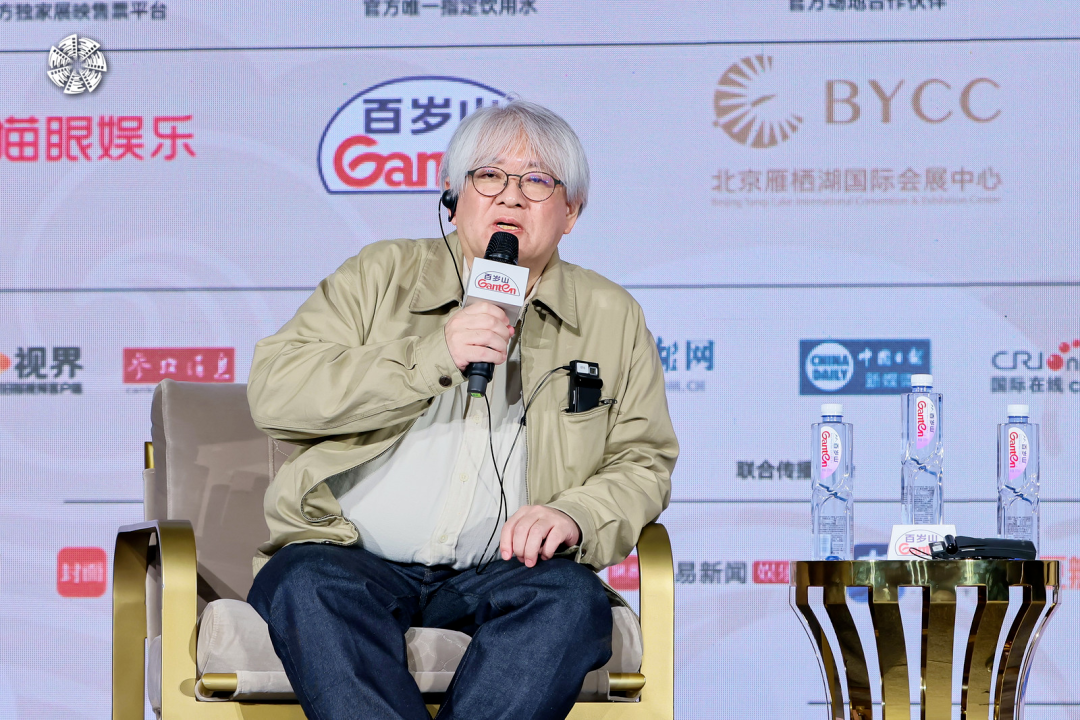
Shozo Ichiyama
Cinematographer Yu Lik-wai praised Jia Zhangke's keen sensitivity to time and space: “He handles space based on the characters' temperament and personality. He also has a clear vision for how space changes over time and how to subtly depict those transformations through precise planning and composition.” Yu Lik-wai also highlighted the switching of aspect ratios as one of the most memorable aspects of the film. From a technical standpoint, he explained: “The original 4:3 aspect ratio was chosen due to standardization in both technology and final distribution. It remained the mainstream ratio until around 1950, so the aesthetic choice of using it was essentially an industrial standard decision.”
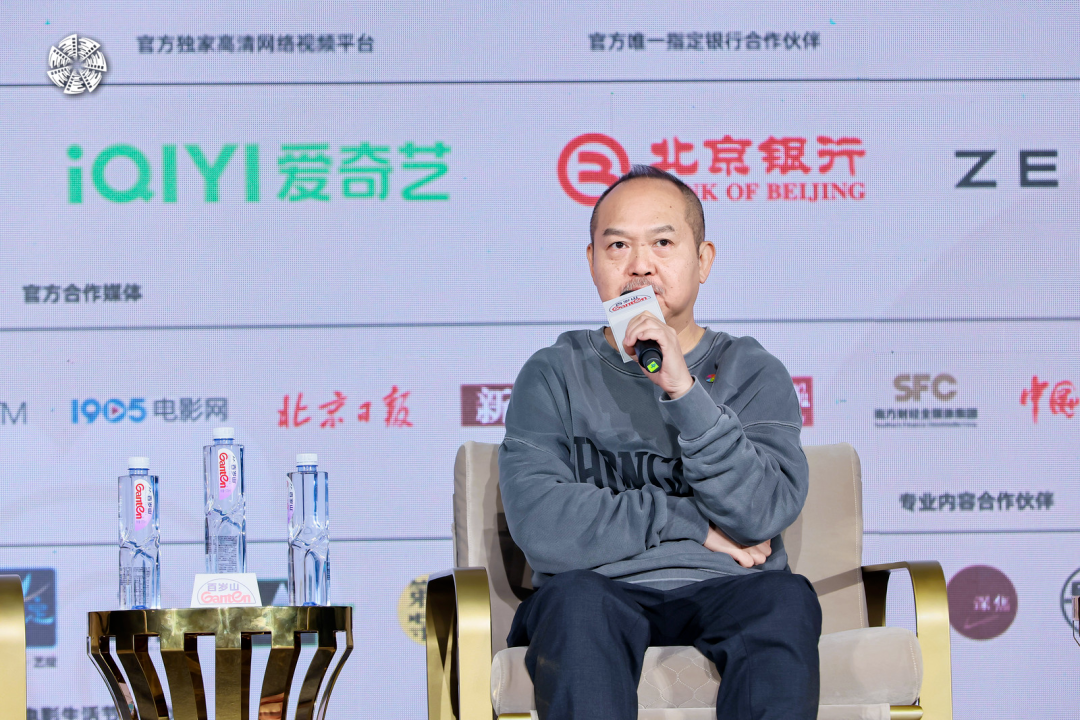

Yu Lik-wai
French editor Matthieu Laclau recalled that he first came to China at the age of 25 and has been living and working there for over a decade: “Working with Chinese directors is a process of my growth.” He emotionally shared that during the editing process of one of Jia Zhangke's films, he received the joyful news of becoming a father - a moment that left a deep and unforgettable memory.
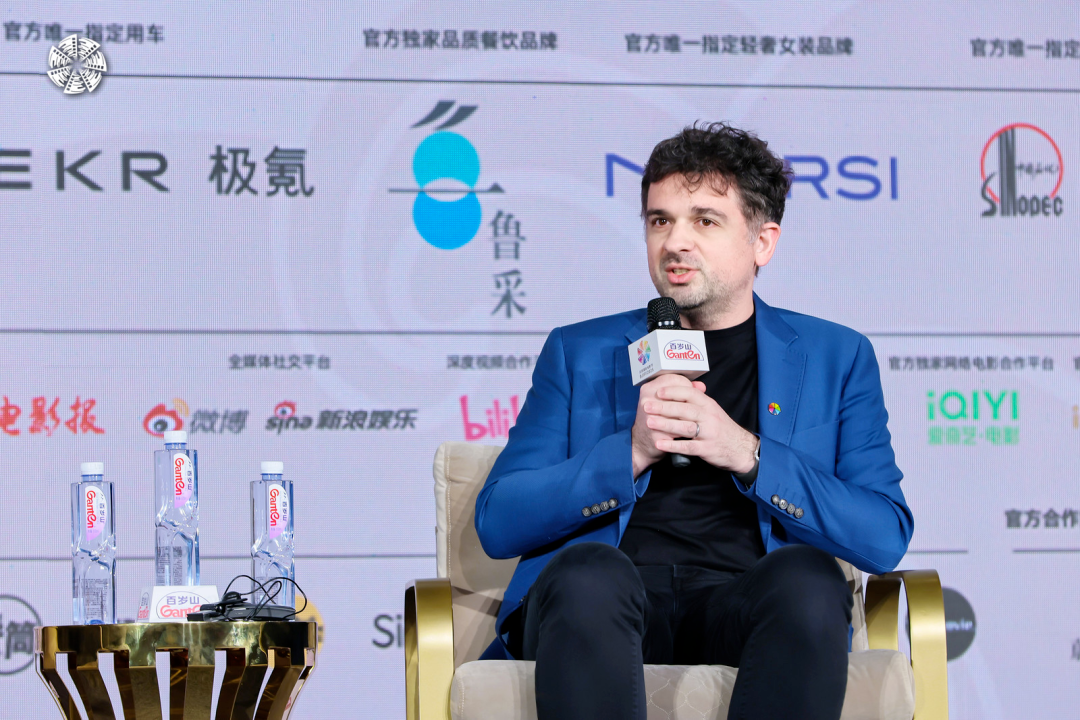

Matthieu Laclau
Sound designer Zhang Yang has collaborated closely with Jia Zhangke since his debut film. He candidly admitted that early on, they sometimes had different opinions. However, after years of creative collaboration, by the time they worked on Mountains May Depart, they had developed great chemistry. “Mr. Jia Zhangke is very clear when it comes to major decisions - whether in terms of creative vision or technical choices. For example, as Mr. Yu Lik-wai mentioned earlier, the choice of aspect ratio isn't just about visuals; it also affects how sound is used across different eras. Or in other words, whether the sound technology available at that time could help the film evoke a distinct sense of era for the audience.”
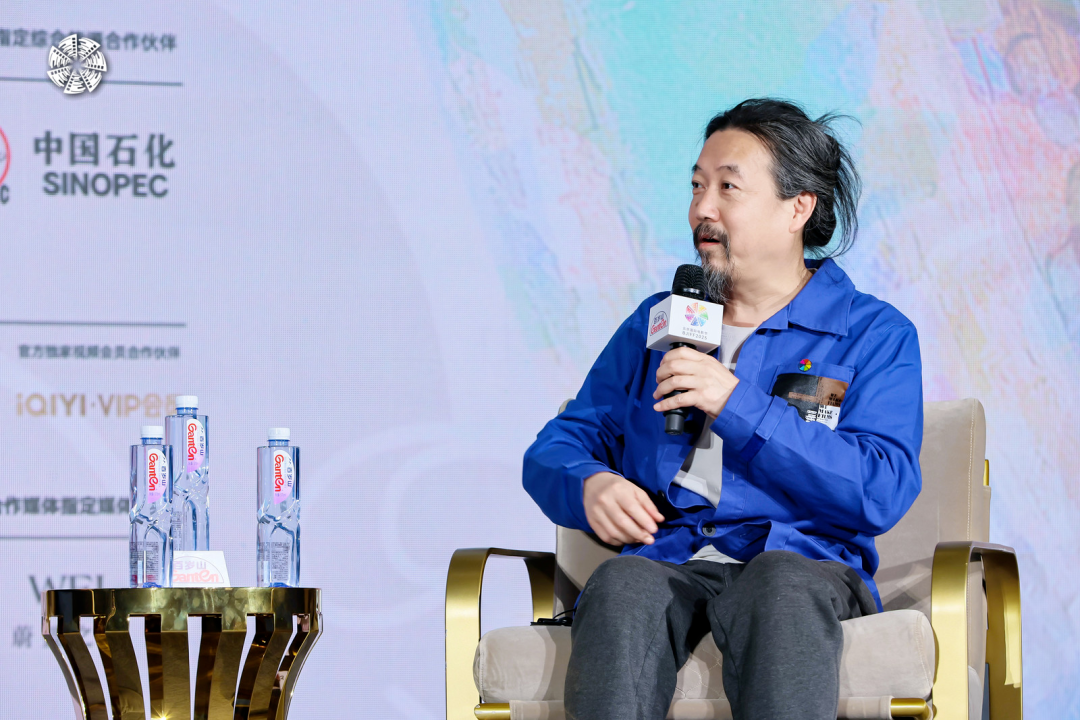

Zhang Yang
▌Capturing the World: Media Evolution Always Rooted in Reality
With the development of digital technology, the medium of film itself has undergone tremendous transformation - from film reels to digital formats, and from traditional projection to modern streaming. This evolution has also influenced how we preserve and recall memories. Jia Zhangke noted that his films reflect this shift in memory forms through the changing media used to convey them.
He mentioned that while shooting Ash Is Purest White, he was actually influenced by modern audiences' habit of watching videos in vertical format, and briefly experimented with filming in portrait mode - although those scenes were ultimately deleted from the final version. “There were many scenes shot in vertical format in the final part of Ash Is Purest White. It did feel lively and dynamic, but also somewhat unbalanced. When you use vertical framing, the film gains a certain abstract beauty, but it feels visually off-kilter. In the end, we decided to remove those parts.”
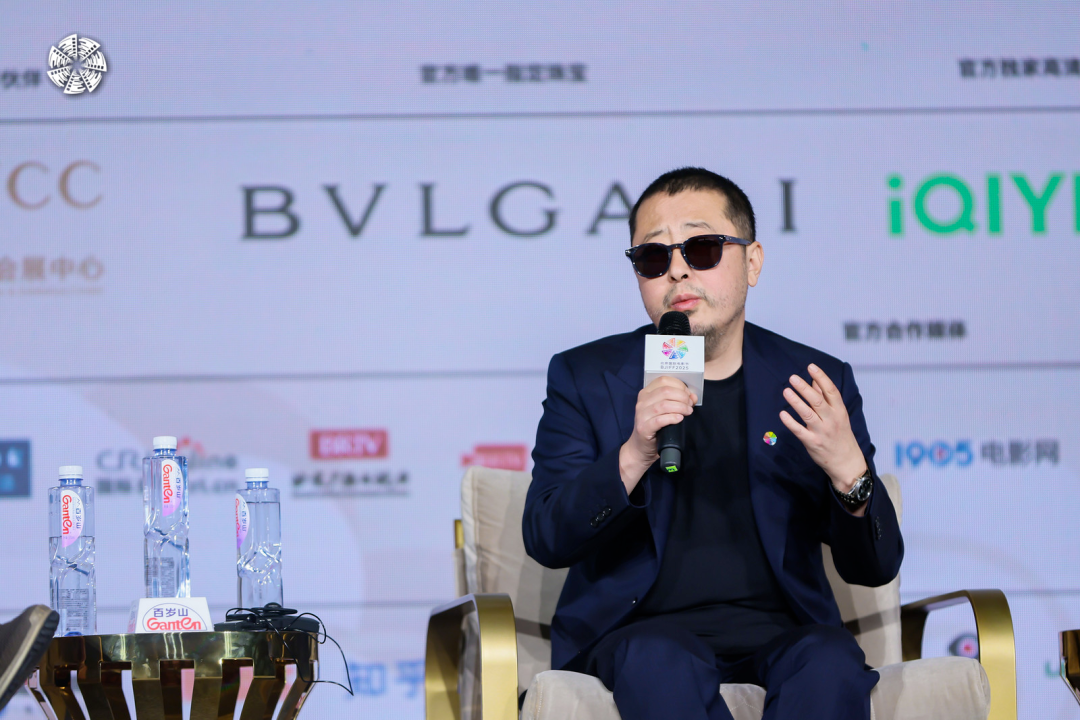

Jia Zhangke
Visual effects are not a particularly obvious feature in Jia Zhangke's films, but in fact, since Still Life, Jia Zhangke and the cast & crew have been using them extensively. "Every film after Still Life has included a lot of visual effects. But for me, it isn't about creating visual spectacle or achieving something that couldn't be shot in real life. Instead, I use visual effects to enhance realism - to process elements that need subtle manipulation. For example, in Still Life, the tightrope-walking scene would have been extremely dangerous to shoot in real life, so we used visual effects to complete it. And yet, it beautifully expressed a kind of magical realism or surrealism that exists in reality."
Regarding emerging AI technologies, Jia Zhangke stated that no filmmaker can afford to ignore technological developments: “Cinema itself is a product of technology. AI can do many things, and personally, I'm especially interested in AI-generated film. However, AI always relies on data - whether it's photographs, moving images, or spatial architecture. Even if AI generates something entirely new, the visual elements are largely second-hand materials.” At the same time, Jia Zhangke expressed an open attitude toward AI: "I think AI-generated film is currently undergoing a huge transformation. It hasn't fully matured yet. Everything is still just beginning. We shouldn't prejudge it - either by rejecting it outright or treating it as an all-powerful solution. Instead, we should first try to understand it, learn how to coexist with it, and walk part of this journey together to see what kind of relationship we can truly build with it."
Returning to filmmaking itself, Jia Zhangke clearly expressed his commitment to shooting on location: “I love being on set. I love observing the world directly and capturing it as it is.”
Finally, Jia Zhangke shared some insights into his current work: “I have two or three scripts waiting to be filmed. I can reveal that they're contemporary stories - reflections of the present moment. They won't be films spanning long periods of time like before.” Even more excitingly, he announced: “I hope to re-release Mountains May Depart when the first snow falls this year.”
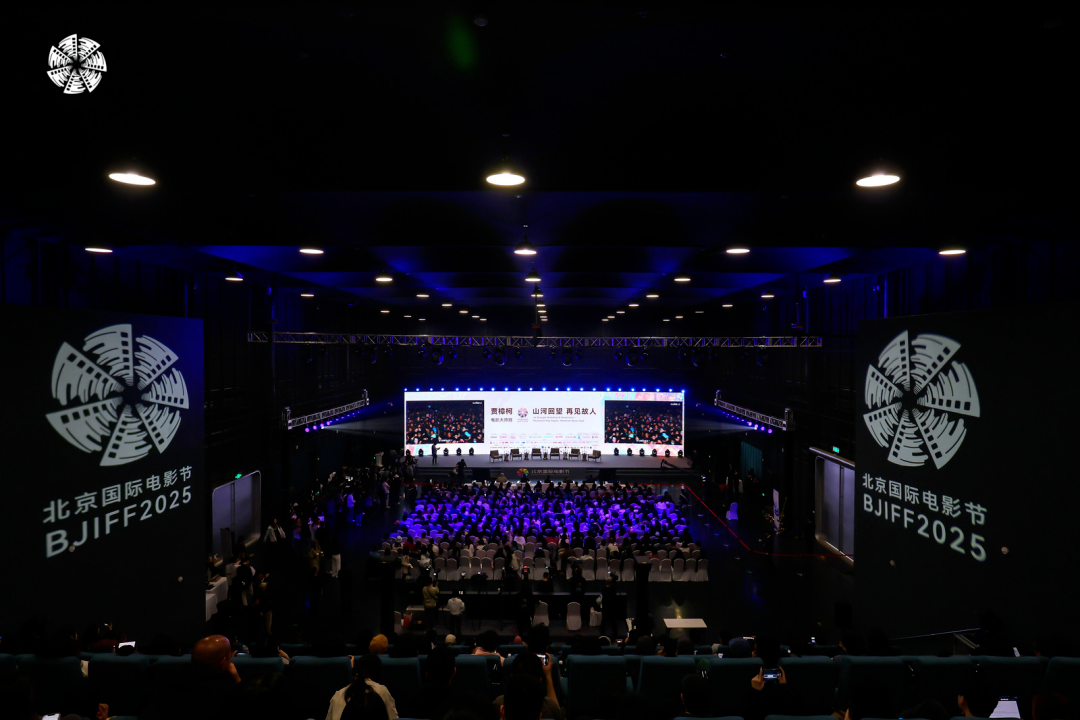

Picture of Jia Zhangke's Workshop & Masterclass
At this workshop & masterclass, Jia Zhangke and his collaborators offered not only a retrospective of nearly thirty years of creative practice, but also a profound exploration of the relationship between cinema and the times. From sincere expressions of personal experience to innovative experiments in technical aesthetics, Jia Zhangke and his team have used moving images to document the transformation of Chinese society, demonstrating the unique power of cinema as a mirror of the era.
As Mountains May Depart so poignantly illustrates, time may change everything, but art can preserve emotion, connecting past and future. Jia Zhangke's cinematic universe will continue to move forward with the tides of the times, telling more stories through the lens - stories about people, about land, and about memory. And this workshop & masterclass was not merely a reflection on past creations, but also a vision for the future of cinema - at the intersection of technology and humanity, the art of film remains full of infinite possibilities.
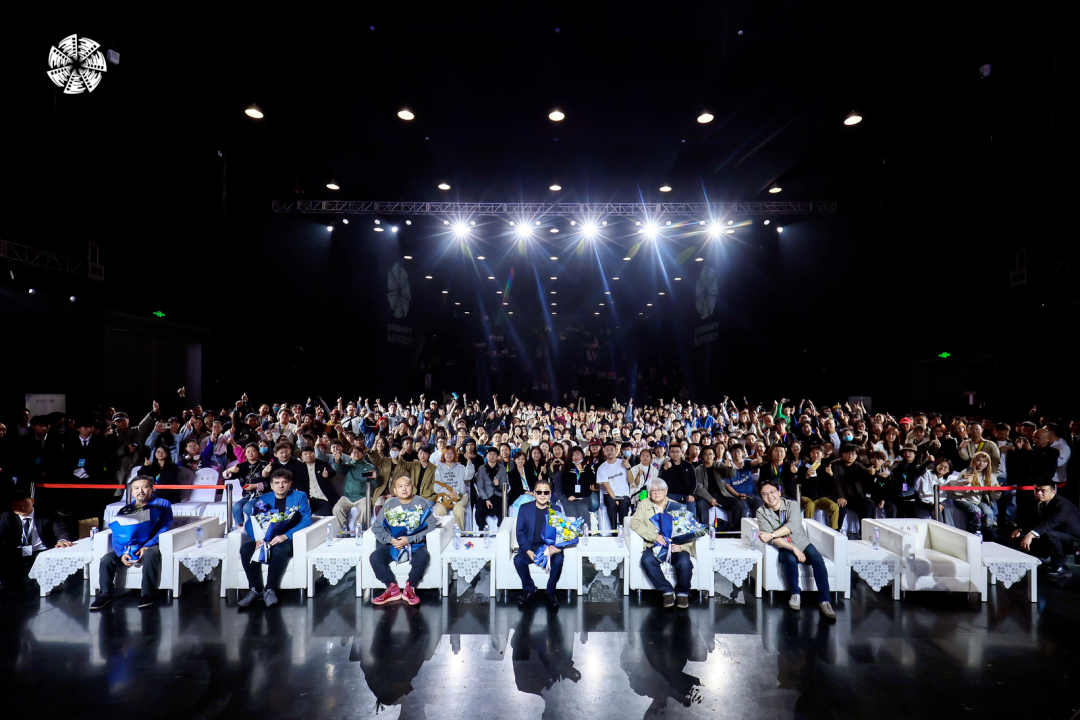

Picture of Jia Zhangke's Workshop & Masterclass

